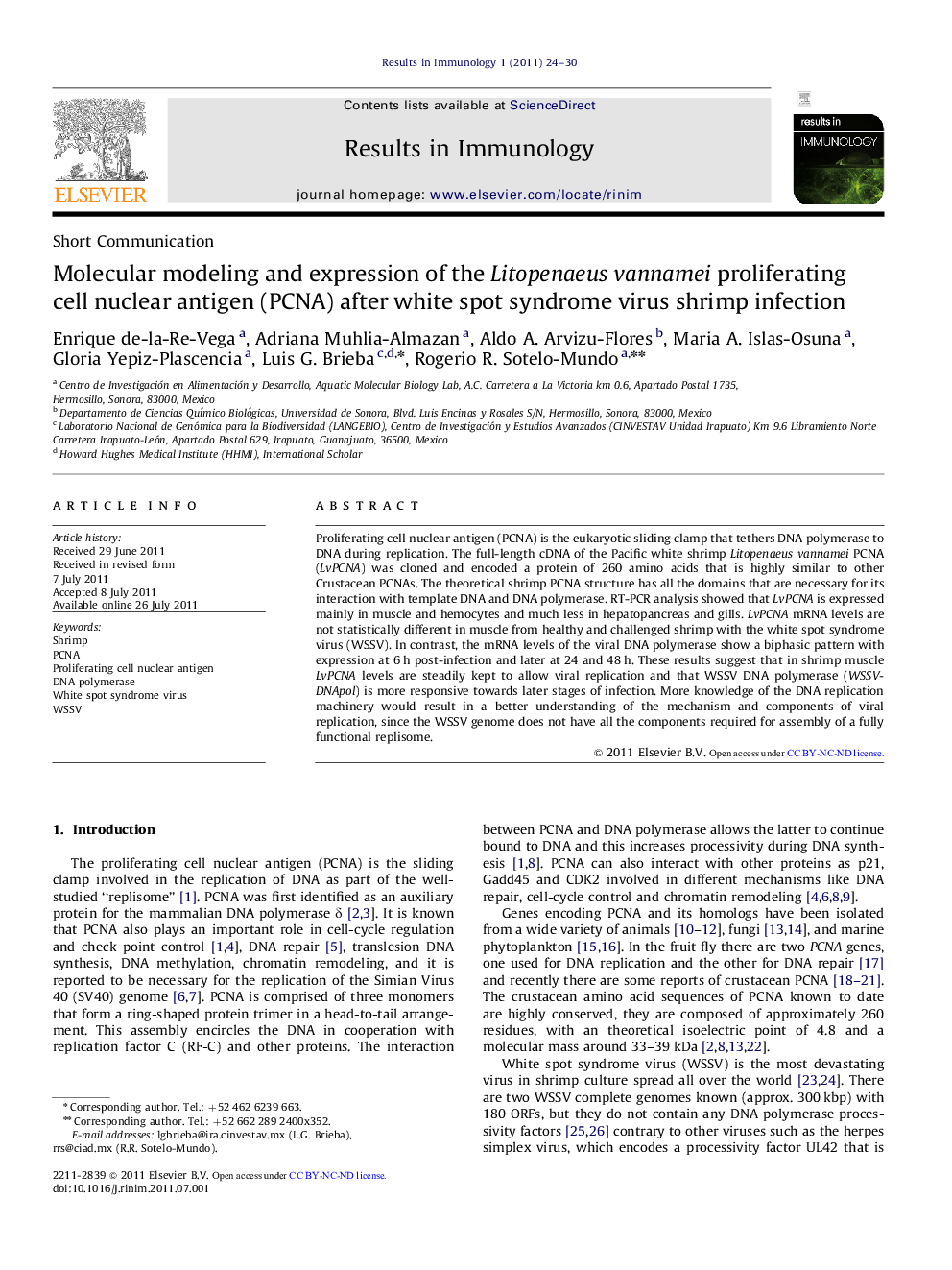| Article ID | Journal | Published Year | Pages | File Type |
|---|---|---|---|---|
| 2202405 | Results in Immunology | 2011 | 7 Pages |
Proliferating cell nuclear antigen (PCNA) is the eukaryotic sliding clamp that tethers DNA polymerase to DNA during replication. The full-length cDNA of the Pacific white shrimp Litopenaeus vannamei PCNA (LvPCNA) was cloned and encoded a protein of 260 amino acids that is highly similar to other Crustacean PCNAs. The theoretical shrimp PCNA structure has all the domains that are necessary for its interaction with template DNA and DNA polymerase. RT-PCR analysis showed that LvPCNA is expressed mainly in muscle and hemocytes and much less in hepatopancreas and gills. LvPCNA mRNA levels are not statistically different in muscle from healthy and challenged shrimp with the white spot syndrome virus (WSSV). In contrast, the mRNA levels of the viral DNA polymerase show a biphasic pattern with expression at 6 h post-infection and later at 24 and 48 h. These results suggest that in shrimp muscle LvPCNA levels are steadily kept to allow viral replication and that WSSV DNA polymerase (WSSV-DNApol) is more responsive towards later stages of infection. More knowledge of the DNA replication machinery would result in a better understanding of the mechanism and components of viral replication, since the WSSV genome does not have all the components required for assembly of a fully functional replisome.
► White Pacific shrimp Litopenaeus vannamei PCNA is very conserved. ► The molecular model is predicted to bind and clamp DNA. ► PCNA mRNA levels do not statistically change upon WSSV infection. ► PCNA mRNA is expressed at much higher levels compared to WSSV DNA polymerase.
